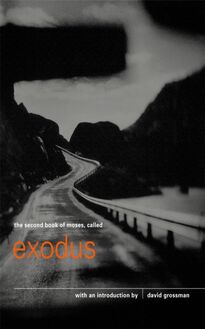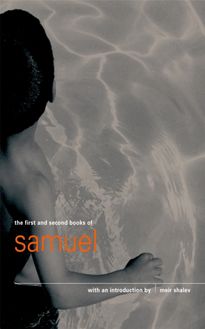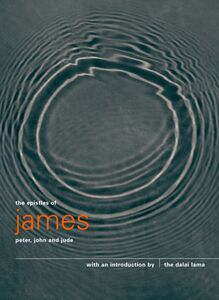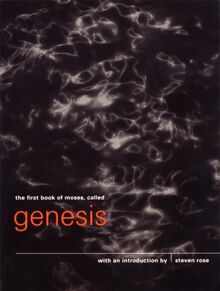Books of Jonah, Micah and Nahum , livre ebook
31
pages
English
Ebooks
1999
Vous pourrez modifier la taille du texte de cet ouvrage
Obtenez un accès à la bibliothèque pour le consulter en ligne En savoir plus
Découvre YouScribe et accède à tout notre catalogue !
Découvre YouScribe et accède à tout notre catalogue !
31
pages
English
Ebooks
1999
Vous pourrez modifier la taille du texte de cet ouvrage
Obtenez un accès à la bibliothèque pour le consulter en ligne En savoir plus
Publié par
Date de parution
01 janvier 1999
Nombre de lectures
3
EAN13
9780857861054
Langue
English
Contents
Title Page a note about pocket canons introduction by alasdair gray jonah 2 3 4 micah 2 3 4 5 6 7 nahum 2 3 Copyright
a note about pocket canons
The Authorised King James Version of the Bible, translated between 1603–11, coincided with an extraordinary flowering of English literature. This version, more than any other, and possibly more than any other work in history, has had an influence in shaping the language we speak and write today.
Twenty-four of the eighty original books of the King James Bible are brought to you in this series. They encompass categories as diverse as history, philosophy, law, poetry and fiction. Each Pocket Canon also has its own introduction, specially commissioned from an impressive range of writers, to provide a personal interpretation of the text and explore its contemporary relevance.
introduction by alasdair gray
Alasdair Gray is an old asthmatic Glaswegian who lives by paint ing, writing and book design. His books are the novels Lanark , 1982 Janine, The Fall of Kelvin Walker, Something Leather , McGrotty and Ludmilla, Poor Things, A History Maker; short story collections Unlikely Stories Mostly, Lean Tales (with Agnes Owens and James Kelman) , Ten Tales Tall True, Mavis Belfrage; poetry Old Negatives ; polemic Why Scots Should Rule Scotland 1992, Why Scots should Rule Scotland 1997; play Working Legs (for people without them); autobiog raphy Saltire Self Portrait 4; literary history The Anthology of Prefaces. His hobbies are socialism and liking the English.
The thirty-nine books called The Old Testament in the King James Bible show the state of the Jews between 900 and 100 BC and preserve legends from more ancient times. They were edited into their present form by scholars defending their culture from an empire ruling the place where they lived: an empire of people equally clever and literate: Greeks whose books were as various as their gods. Jews were then unique in worshipping a single God: their folklore, laws, politics and poetry kept mentioning him. The editors arranged these books in the chronological order of the subject matter, producing a story of their people from prehistoric times and making their God the strongest character in world fiction. It began with a second-century BC poem telling how he made the universe and people like a poet, out of words, followed by a fifth-century BC tale of how he made man like a potter, out of clay. It then showed God adapting to his worshippers from prehistoric times to their own.
Adam, Cain and Noah find God punitive but soothed by the smell of burnt flesh, mostly animal. He connives with the tricks of Abraham and Isaac, polygamous nomads who get cattle or revenge by prostituting a wife or cheating foreigners and relatives. When Moses leads Jewish tribes out of Egypt God commands them like a Pharaoh, promising unlimited protection for unlimited obedience. He is a war god when they invade Palestine, smiting them with plague when they do not kill every man, woman, child and animal in a captured city. Their leaders (called prophets because God tells them the future) are fathers of tribal families and military commanders until they get land and cities of their own where (as 92 , Whin other lands) wealth is managed by official landlords and priests who exploit the poor. New kinds of prophet then arise: poets inspired by moral rage who speak for the exploited. They say that if Jewish rulers don’t obey God by being just and merciful he will use the might of foreigners to smash their new-made kingdoms. That happens. From 680 BC to 1948 Jews are ruled by foreign empires, first Assyrian and at last British. They outlive so many empires that Norwegian Ibsen calls them the aristocrats of world history, for they can survive without a land and government.
That was not wholly true. They were governed by the words of their prophets, especially those in the last Old Testament books who said the Jewish God is also God of all people, even people who oppress them; that God has created Jews to keep his words alive until the whole world learns justice and mercy by obeying him; that before then Jews should welcome suffering as punishment for sin or tests of faith. After the first destruction of Jerusalem in 586 BC this must have sounded a new policy to those who wanted to repossess a national territory gained (as all nations have gained territory) by killing folk. No wonder many Jews assimilated with foreigners and the faithful sometimes sang psalms begging God to leave them alone.
The book of Jonah is a prose comedy about a Jew who wants God to leave him alone and cannot grasp that God’s policy is now for those of every nation.
Jonah is an unwilling prophet. His Jewish conscience orders him to denounce the wicked Assyrian empire in its capital city so he at once sails towards a different city where he hopes foreign gods will prevail over his own. This breaks the first of the ten commandments: You shall have no other God than me ( Deuteronomy 5): hence the tempest. The international crew see it is aimed at someone aboard. Many verses describe their reluctance to fling Jonah out, even when he tells them it is the one way to save themselves. The book is insisting that mercy is not just a Jewish virtue; but out Jonah goes and God saves him in the belly of a fish. Here the prophet chants a psalm saying God can save those who cry unto him from the belly of hell. This hell is not the eternal torture chamber later adopted by official Christianity. For Jews hell is the worst that living people can suffer and Jonah IS suffering it, unless the fish intestines are a cosy place. But now he knows that God is always with him and he need not fear death.
Then comes a parody of Exodus , Chapter 11, perhaps the cruellest book in the Old Testament . In it the God of Moses sends Pharaoh a message then hardens Pharaoh’s heart to reject it, giving Moses an excuse to condemn all Egyptian first-born children and cattle to death by plague. But God uses Jonah to send the Assyrians a message that softens their king’s heart. The king leads his people into abandoning their evil ways, so God repented of the evil that he had said that he would do unto them; and he did it not (Jonah 3:10). This contradicts the Mosaic code, which says evil MUST be rewarded with evil.
So Jonah learns he is not a scourge in the hand of God, like Moses, Joshua and Samson, but a reformer, and like many reformers he now looks stupid. It is obvious that the enemy king who thought his people might be persuaded to deserve mercy knew more about God than God’s Hebrew prophet. Jonah’s short but influential career ends not with a bang but with his dismal whimper: I knew that thou art a gra cious God, and merciful , … Therefore now, O Lord, take, I beseech thee, my life from me, for it is better for me to die than to live ( Jonah 4:2–3). God cuts this self-pitying cackle with a short question: Doest thou well to be angry ? ( Jonah 4:4) Jonah is too cowardly or childish to admit anger and squats outside the city determined to die by sunstroke if the promise of destruction is not fulfilled. Not even the mercy of miraculous shade cast over him softens this determination. The shade is withdrawn. In a fever Jonah hears God repeat something like his last question. He now answers truthfully and is favoured by words framed like another question. They suggest reasons for both God’s action and his inaction: most evil is caused by folly; widespread slaughter is not the best cure if a warning of disaster helps folk to change their ways. We are not told if Jonah learns these lessons because they are meant for us .
Believers and unbelievers have argued pointlessly about the truth of Jonah’s book because they did not know great truths can be told in fantasies. It was known by editors who put Jonah before Micah and Nahum , realistic books about the destruction of Jerusalem and Nineveh.
Micah starts a prophetic sermon in verse by denouncing the Jews who live in Samaria: God has let Assyria enslave them for disobeying him; soon the princes and priests of Jerusalem will be conquered too, for they seek wealth and luxury instead of justice and mercy, oppressing the poor of their own nation while thinking God’s forgiveness can be bought by animal sacrifices. Micah foretells a disastrous but not hopeless future: after much warfare the whole world will find peace by accepting the one true God, for a Jewish ruler from the little town of Bethlehem will become lord of every nation. This prophecy must have inspired hope and dread in every imaginative child born afterwards in Bethlehem.
Nahum came eighty years later. He was probably an Assyrian slave when all Jewish territory had been conquered as Micah foretold. Nahum saw the destruction of Nineveh by the combined armies of Babylon and Persia: these killed and enslaved the people and washed the city away by channelling the River Tigris into it. The only grand truth in Nahum’s triumphant song is that nations who keep living by armaments will perish by them. Most governments, including the British, think this only true of foreign nations. I quote from Tom Leonard’s On the Mass Bombing of Iraq and Kuwait, Commonly Known as ‘ The Gulf War ’ with Leonard ’ s Shorter Catechism . AK Press published it in 1991.
Q. What did Britain take part in on Tuesday, February 19, 1991?
A. It took part in what was at that point ‘one of the most ferocious attacks on the centre of Baghdad’, using bombers and Cruise missiles fired from ships.
Q. What did John Major say about the bombing the next day?
A. He said: ‘One is bound to ask about attacks such as these: what sort of people is it that can carry them out? They certainly are consumed with hate. They are certainly sick of mind, and they can be certain of one thing – they will be hunted and hunted until they are found.’
(He was talking about 5 lb of explosive left in a litt














